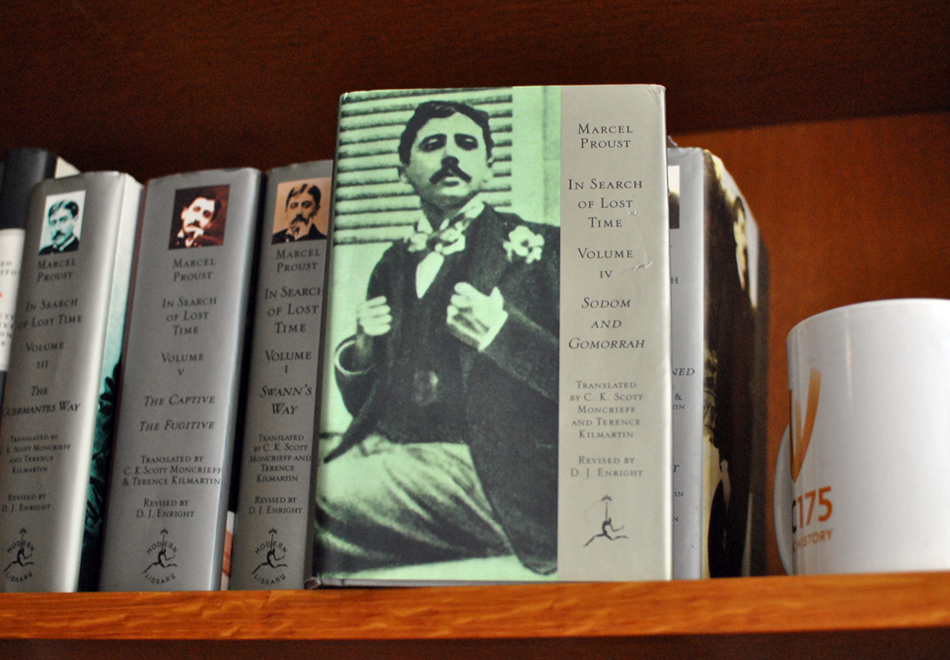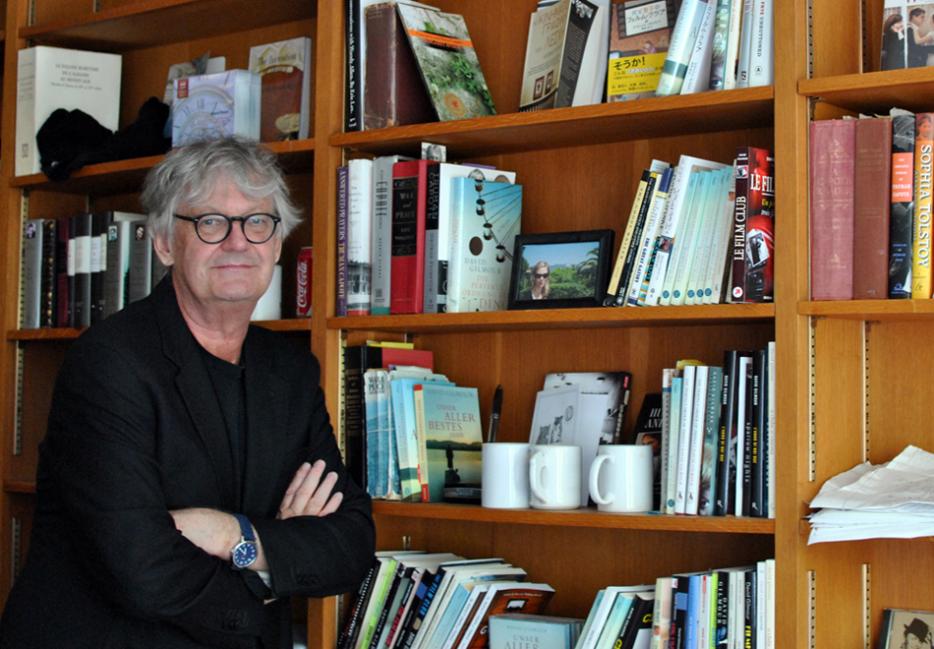Shelf Esteem is a weekly measure of the books on the shelves of writers, editors, and other word lovers, as told to Emily M. Keeler. This week’s shelf belongs to David Gilmour, whose most recent novel, Extraordinary, appears on the Giller longlist. Gilmour won the Governor General's literary award in 2008 for his novel A Perfect Night to Go to China, and formerly hosted the television show Gilmour on the Arts. We met in his office in Victoria College at the University of Toronto, where the view looks out onto the trees on campus. They were on the verge of brilliance, just threatening to turn ‘round autumn's bend.
UPDATE: You can read the full transcript of this interview here.
I can’t really give you the tour. I’ve just moved, so my library at home is unfortunately in storage. A thousand, maybe twelve hundred books are in storage. The books here, this tends to be what I teach. These are, of course, the treasured Proust, one of my great joys is not only having read Proust but having read him twice, and having listened to the audio CD twice. There’s two versions, one’s 50 hours and one’s 150 hours. They’re both dazzling. I like volume 4, Sodom and Gomorrah, it’s the most entertaining, it’s the funniest. It’s very, very funny about human vanity, particularly gay vanity.

I teach only the best. What happens with great literature is that the shadows on the pages move around. So you read it when you’re 46, and you read it when you’re—I’m 63 now, and it’s moved. Great literature organically moves, and it never stays still. You don’t get tired of it, you just notice different things about it. What is intolerable is second- and third-rate literature, because it gives up all its secrets the first time. And the second time you read it, it’s all there; there’s nothing new. It’s like an Andy Warhol painting—you look at an Andy Warhol painting once, you can look at it a hundred times and there’s nothing new in it. But I’ve read War and Peace four times, and I’m still breathtaken with how much good I hadn’t noticed the other three times.
You can read the full transcript of this interview here.
Shelf Esteem runs every Tuesday.





